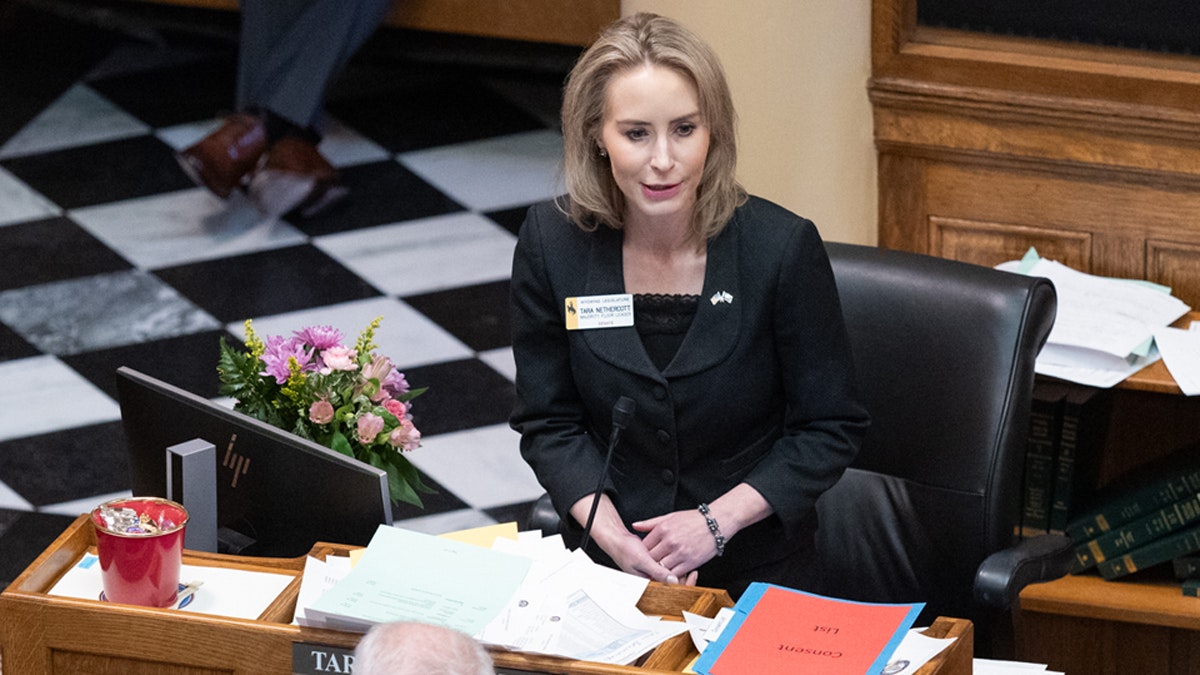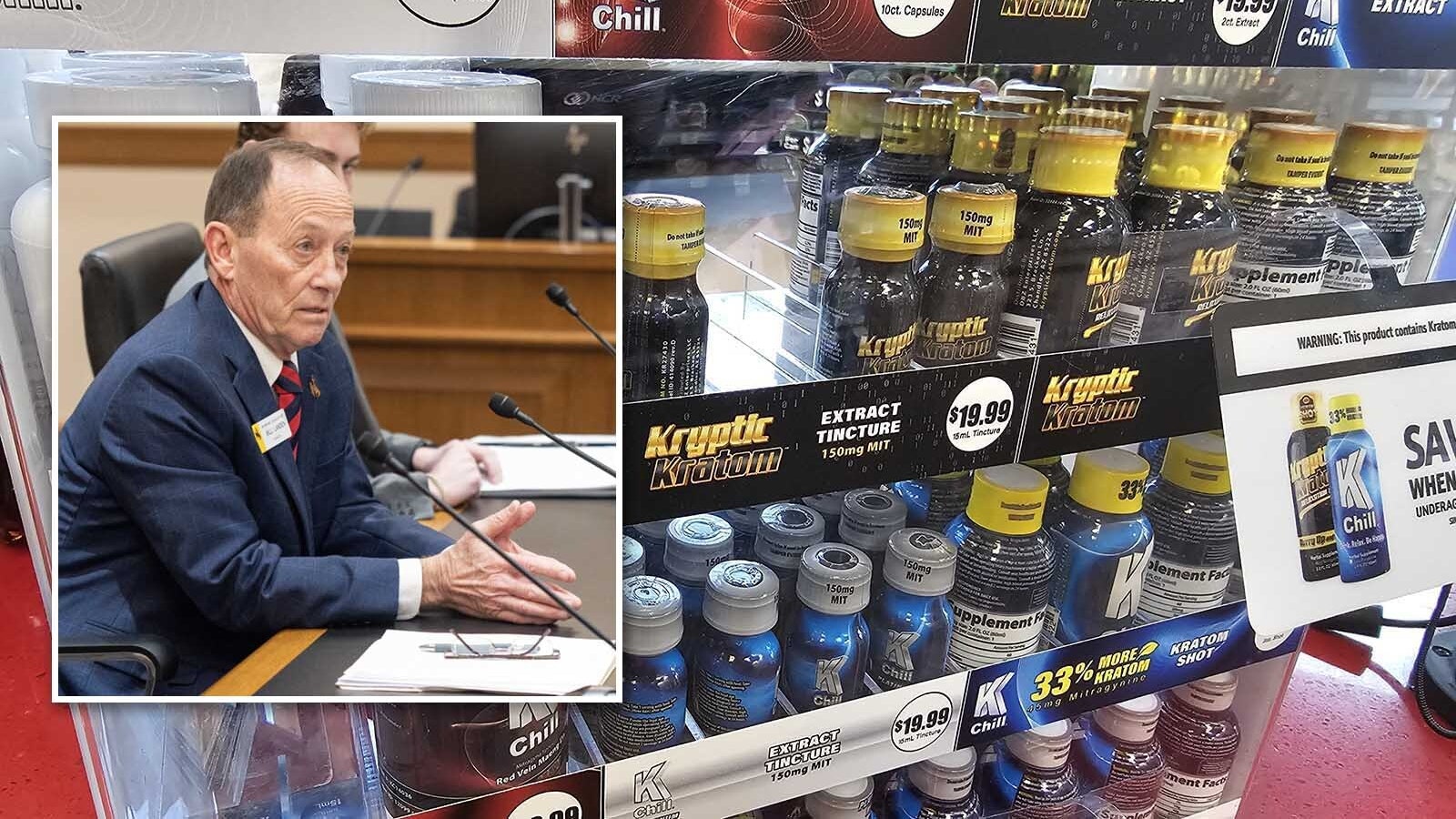Members of the Cheyenne City Council on Monday approved a Memorandum of Understanding (MOU) document, which seeks state money to offset expected costs associated with construction of a new energy development in Chugwater.
The Chugwater Energy Project, backed by Florida-based NextEra Energy will create an estimated 600 megawatts of energy through the construction of wind turbines and solar panels in and around Chugwater. Developers estimate the project will bring nearly $1 billion to the area and create 450 jobs.
Despite being about 40 minutes from Chugwater by car, Cheyenne predicts it could see a negative financial impact of $464,827 from the project. Its MOU document formally requests those relief funds from the state.
Public Debate
Mayor Patrick Collins began Monday’s discussion by noting the conversation was not about the project itself, adding that the Platte County commissioners are responsible for making that decision.
Platte County resident Jill Caufman urged the council to avoid approving the MOU, saying Cheyenne should not become dependent on government handouts. She urged the council to remain patient as President Donald Trump works on “cleaning up” renewable projects such as the Chugwater development.
“We’re just digging into our pockets with peoples’ money,” she said. “Are we going to continue to go down this road of always asking for money, money, money from the government?”
Cheyenne realtor Wendy Volk, who also testified vocally against the Laramie Range Wind Project, warned the Chugwater project could have a major “ripple effect” on the city and advocated for the council to approve the MOU.
“Starting in May of 2026, we’re going to see an increase of about 100 workers to the Chugwater area,” she said. “That’s going to quickly increase to 450 employees, so yes, Cheyenne will be impacted and Laramie County will be impacted.”
During council discussion, Councilmember Michelle Aldrich said she was concerned the money would not be sufficient to accommodate the increased burden on Cheyenne’s government. She also noted these workers often do not bring families with them when they travel for work.
“That amount is not going to even reach or touch the amount that our area is going to be impacted,” she said.
Councilmember Mark Moody then asked whether hotels in the Chugwater area could be used as long term housing for these workers.
City Attorney John Brodie said the hotels’ vacancy rates were not conducive to accommodating all the workers, meaning some would resort to commuting from Cheyenne.
Councilmember Kathy Emmons then said she believes it would be “incredibly irresponsible” not to seek these funds. Councilmember Ken Esquibel echoed those comments, saying the city must prepare itself to mitigate the impacts on the surrounding counties.
Moody then said he will remain a “no vote” and suggested the funds should go toward the community being impacted directly by the project.
“I actually got to visit the site and I honestly think that they’re going to be impacted,” he said. “They need the money more than us.”
Aldrich pushed back, however, saying Cheyenne will need the funding sorely should the Chugwater project receive approval.
“There will definitely be a need to answer to voters and our constituents if we walk away from $487,000,” she said.
The resolution then passed, with Moody opposed.
Employee Influx
Aldrich told Cowboy State Daily the city expects a significant impact due to the number of workers coming to the area. Chugwater and the surrounding area do not have enough housing for the new workers, meaning many will seek accommodation in Cheyenne.
“Whenever a big energy project is done, there’s an opportunity for communities to talk about the impact it’s going to have on their local community,” she said. “What our city has done is they’ve calculated how much of an impact that energy project could have on Cheyenne.”
While Aldrich said similar aid funds have previously been used in cites around the state to build schools or other community facilities, she said the nearly $500,000 is still just a fraction of the city’s annual budget.
“We have an over $50 million budget each year so this is a really minimal,” she said of the money. “Just on the [Spiker] parking garage alone, we still have a bond that we still owe that’s over $2 million dollars.”
Collins told Cowboy State Daily that Wheatland and Chugwater have a combined total of 407 hotel and RV slots, meaning there will be more employees on the job site than there are places to stay. Collins said Cheyenne used this information to calculate the amount of funds needed based on an average “cost per service” figure of about $350 per person.
“When we look at this project, if we’re going to have another 100 people come, we multiply that 100 people times our cost of service and we figure that is our impact to our general fund and to the operation here of our city.”
“Do I believe that there will be some people living here in Cheyenne who will be actively working on that site? I do believe there will be,” he added.
While this influx of workers will likely bring increased business to the city, Collins said the city must still find a way to afford the additional burden placed on its general fund.
“That’s the, I don’t know if you want to call it a strategy, but the way that we go about looking at this,” he said.
Cheyenne will also likely be expected to aid the Chugwater Fire Department in emergency response to the construction site, adding additional burden caused by the construction. Collins said Cheyenne has one of the only emergency teams in the area capable of performing emergency rescues in high places like the tops of wind turbines.
“If something were to happen, we’re probably the closest and best equipped to handle a lot of those things,” he said. “We’ll be standing ready in case they need any sort of extra support.”
Pushback
Moody on Sunday traveled to Chugwater, after which he posted pictures of himself surveying the project site. He argued these funds do not belong in Cheyenne due to its distance from the project.
“I question how Cheyenne would be impacted, especially related to the housing aspect I do not see this project impacting the City of Cheyenne,” he wrote via Facebook. “The impact money should be focused in Chugwater and southern Platte County.”
“I also do not support this project after learning the impacts and seeing firsthand where it would be located not just impacting the residents, ranchers, and farmers but also will negatively pronghorn migration, and area 59 for hunters,” he added. “This project needs to be stopped before there is severe impacts that would be hard to reverse.”
Jackson Walker can be reached at walker@cowboystatedaily.com.






